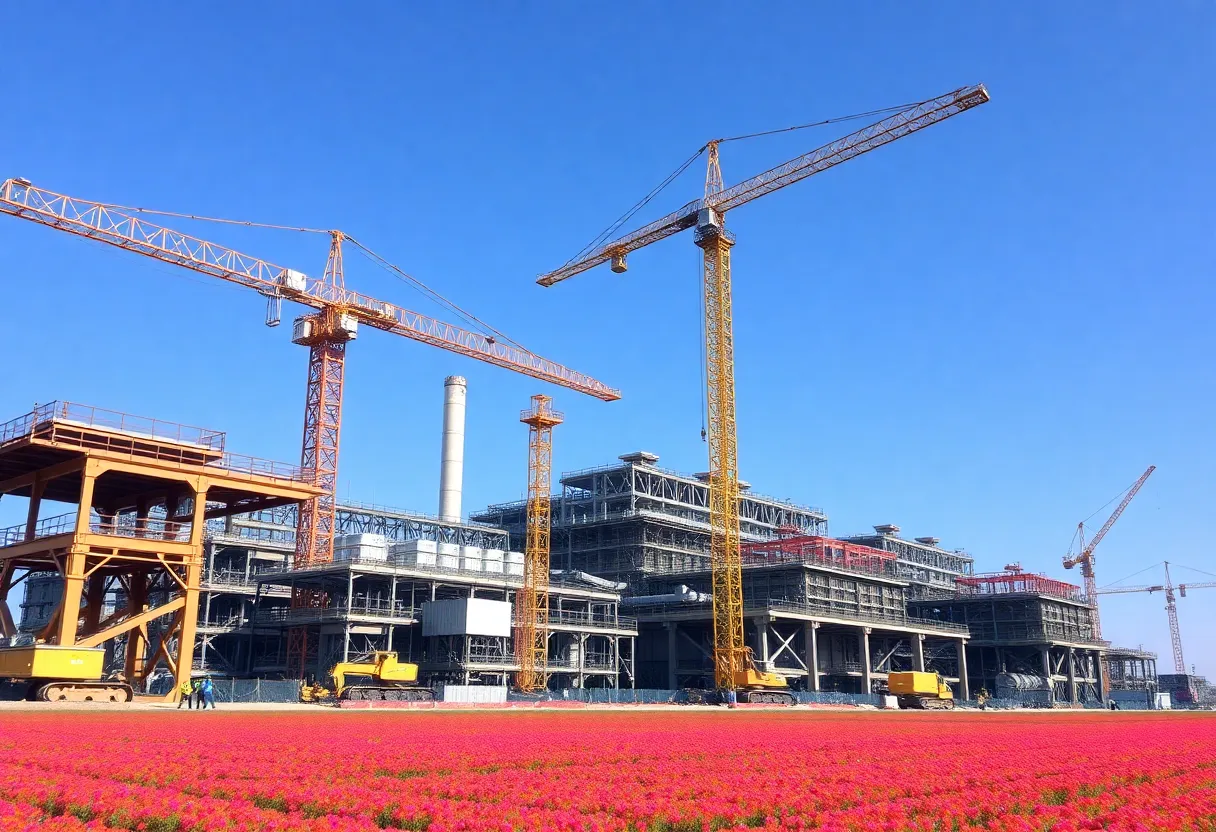News Summary
Executives in Texas are expressing significant concerns about the economic chaos stemming from recent tariffs. With 60% of business leaders predicting substantial challenges, many are considering passing increased costs onto consumers. This turbulence is leading to diminished confidence in business forecasting and planning, causing a ripple effect across various industries. A sense of unpredictability prevails, further exacerbating the situation as major companies adjust operations amidst forecasts of a potential recession. Overall, the tariff situation is casting a daunting shadow over Texas businesses, resulting in heightened caution and uncertainty.
Texas executives across various industries, including manufacturing, retail, and services, have reported significant negative impacts resulting from the tariffs imposed during the Trump administration. Recent surveys conducted by the Federal Reserve Bank of Dallas, between April 15 and April 23, reveal widespread anxiety and uncertainty among approximately 350 executives regarding the future of their businesses amid these tariff policies.
The surveys highlighted that around 60% of executives believe that higher tariffs will adversely affect their operations this year, while a mere 3.2% expect any benefits from the tariffs. As a direct consequence, approximately 55% of those anticipating negative impacts plan to transfer at least some of the increased costs to their customers.
Many respondents characterized the current economic atmosphere as one of chaos and uncertainty, referring to the situation with terms such as “nonsense” and “absolutely terrible.” The lack of a coherent and consistent tariff strategy has led to unpredictable conditions, making it difficult for businesses to attract new clients or develop long-term plans.
A manufacturing executive noted that tariffs have significantly heightened costs and introduced unpredictability into supply chains, which in turn has slowed down decision-making processes. This chaotic environment is impacting not just businesses but also extends to their customers and suppliers. In the professional services sector, executives reported that fear among consumers is leading to practices like cash hoarding and diminished spending, which further hampers business growth.
While some executives did acknowledge possible benefits, such as reduced raw material costs from decreased beef exports, the overarching sentiment remained pessimistic regarding the overall economic implications of tariffs. Concerns regarding potential recession and its effects on demand for goods and services were echoed throughout the surveys, with warnings of slowing job growth complicating the already challenging situation.
In addition, the impending tariffs on countries like China have instigated fears of retaliatory actions affecting trade relations, which poses further risks to the economy. As a result, certain executives indicated they are deferring capital improvement initiatives and are contemplating hiring freezes as they brace for anticipated economic slowdowns.
The uncertainty surrounding tariffs has created a significant burden on planning and investing for businesses. Executives expressed their frustration over the lack of clear communication related to the intended outcomes of the trade policies, which complicates business strategies for budgeting and investment.
The uncertainties are also visible in the stock market, where fluctuations have occurred, attributed to ongoing discussions and fears related to tariffs. This hesitance in the private sector has markedly slowed job growth, as companies exercise caution in their hiring and investment decisions. For instance, Caterpillar Inc. projected a steep increase of $350 million in costs because of the tariffs, while Tesla noted a sharp 71% drop in profits, expressly attributing part of this downturn to tariff-related complications despite benefiting from localized supply chains.
Additionally, representatives from the airline industry, including major operators, noted a reduction in consumer travel plans, correlating with the uncertainty stirred by tariffs. Executives warned of potential shortages in products heavily reliant on Chinese manufacturing, which could directly impact market availability.
Toy manufacturer Mattel announced a pause on its financial forecasts for 2025, citing continuous uncertainties due to the evolving tariff landscape, reflecting a broader trend of caution across various sectors.
In conclusion, the recent Federal Reserve Bank of Dallas surveys underscore a prevailing sentiment among Texas executives that Trump’s tariffs have introduced chaos and unpredictability into the business environment, with widespread concerns over both immediate and long-term economic repercussions.
Deeper Dive: News & Info About This Topic
- Houston Chronicle: Texas Executives Speak Out on the Turbulent Impact of Tariffs
- Wikipedia: Tariffs
- Reuters: Taiwan Foreign Minister Visit to Texas
- Google Search: Texas trade impact tariffs
- Fredericksburg Standard: Projections Show Texas Trade Volumes Will Fall Due to Tariffs
- Google Scholar: Texas tariffs impact
- Express News: Texas Business and Trump Tariffs
- Encyclopedia Britannica: Tariffs effects
- Bloomberg: Texas Wildcatters Grow Impatient with Trump
- Google News: Texas business tariff news
Author: STAFF HERE GEORGETOWN
The GEORGETOWN STAFF WRITER represents the experienced team at HEREgeorgetown.com, your go-to source for actionable local news and information in Georgetown, Williamson County, and beyond. Specializing in "news you can use," we cover essential topics like product reviews for personal and business needs, local business directories, politics, real estate trends, neighborhood insights, and state news affecting the area—with deep expertise drawn from years of dedicated reporting and strong community input, including local press releases and business updates. We deliver top reporting on high-value events such as the Red Poppy Festival, Georgetown Swirl, and Christmas Stroll. Our coverage extends to key organizations like the Georgetown Chamber of Commerce and the Downtown Georgetown Association, plus leading businesses in manufacturing and tourism that power the local economy such as local wineries and historic downtown shops. As part of the broader HERE network, including HEREaustin.com, HEREcollegestation.com, HEREdallas.com, HEREhouston.com, HEREgeorgetown.com, and HEREsanantonio.com, we provide comprehensive, credible insights into Texas's dynamic landscape.






